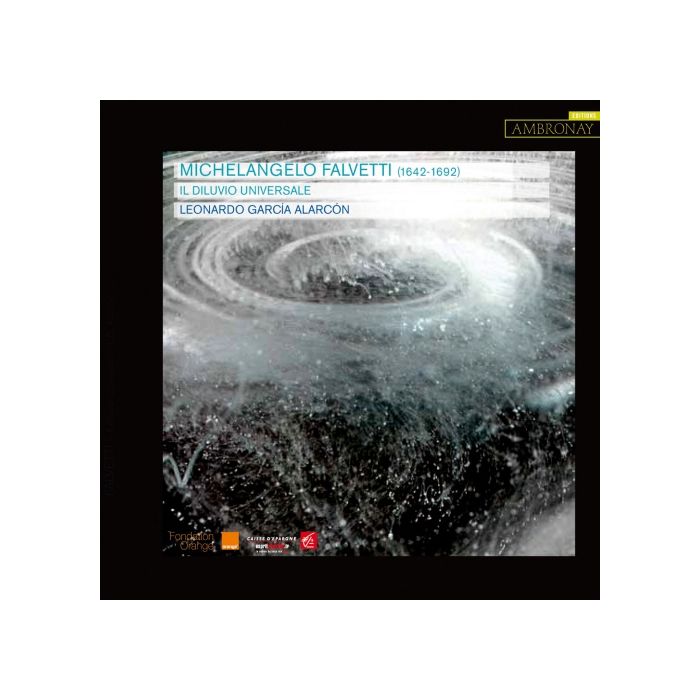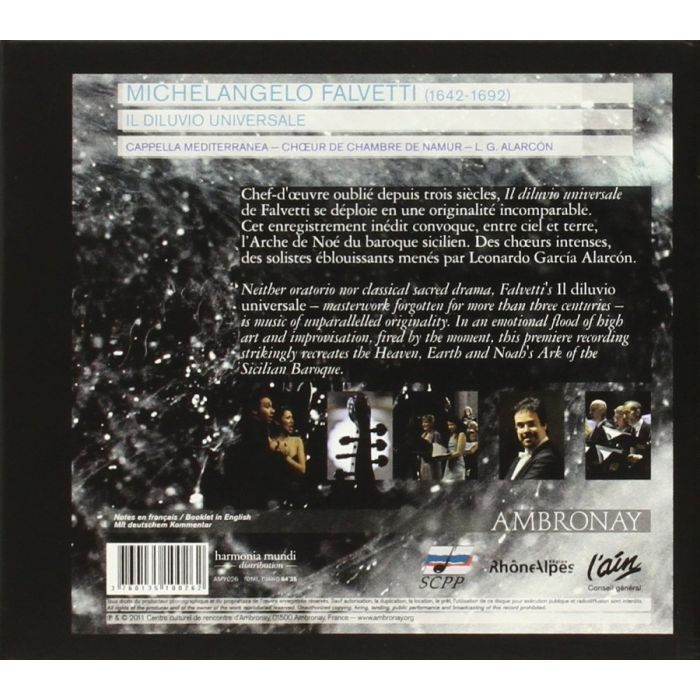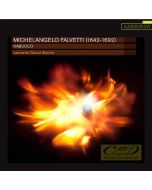
(Produkt nie został jeszcze oceniony)
kompozytor
Falvetti, Michelangelo
tytuł
Falvetti: Il diluvio universale – oratorium
wykonawcy
Garcia Alarcón, Leonardo
nr katalogowy
AMY 026
opis
Il diluvio universale has lain forgotten for three centuries and displays an originality unparalleled in the history of the Italian oratorio. What image is more powerful than the Flood for a composer, choirmaster of a city ravaged by earthquakes and tidal waves? In 1682, this was the theme that inspired Michelangelo Falvetti to write his oratorio, in Messina, Sicily. Leonardo Garciá Alarcón has collaborated with the Iranian master of percussion, Keyvan Chemirani on the restoration of Falvetti´s Baroque masterpiece, performed at the Ambronay Festival in 2010. Keyvan has restored to us the elements of improvisation often lost by blindly following a score. In Sicily, especially, these elements are still a living presence in folk music. The story is taken from one of the best-known and most catastrophic episodes in the Old Testament: the Lord, weary of earthly wickedness and corruption, decides to exterminate humanity by making it rain continuously for 40 days and 40 nights. He will spare only Noah, his family, and the animals of each species which He has ordered to be given shelter in the Ark. The subject is splendidly suited to dramatic treatment, and librettist Vincenzo Giattini and Falvetti take full advantage of this throughout the piece. The listener will long remember the tender duet between Noah and his wife Rad; rain overwhelms the desperate chorus, the final light of hope. Fascinated by the voice and a keen exponent of musicological research, Leonardo García Alarcón is regarded as one of the key artists of the new generation of conductors specialising in Baroque music. In 2005 he founded Cappella Mediterranea, which he directs, and he has been artistic director of the Choeur de Chambre de Namur since January 2010. For Ambronay Éditions, he has already recorded programmes of music by Peter Phillips, Barbara Strozzi, Handel´s Judas Maccabæus, Purcell´s Dido and Æneas and Vivaldi´s Vespro a san Marco.
nośnik
CD x 1
wydawca
Ambronay
data wydania
27.09.2011
EAN / kod kreskowy
3760135100262
97,00 zł
Produkt dostepny w niewielkiej ilości.
Wysyłka w ciągu 3 dni roboczych
Darmowa wysyłka dla zamówień powyżej 300 zł!
Darmowy kurier dla zamówień powyżej 500 zł!
sprawdź koszty wysyłki

